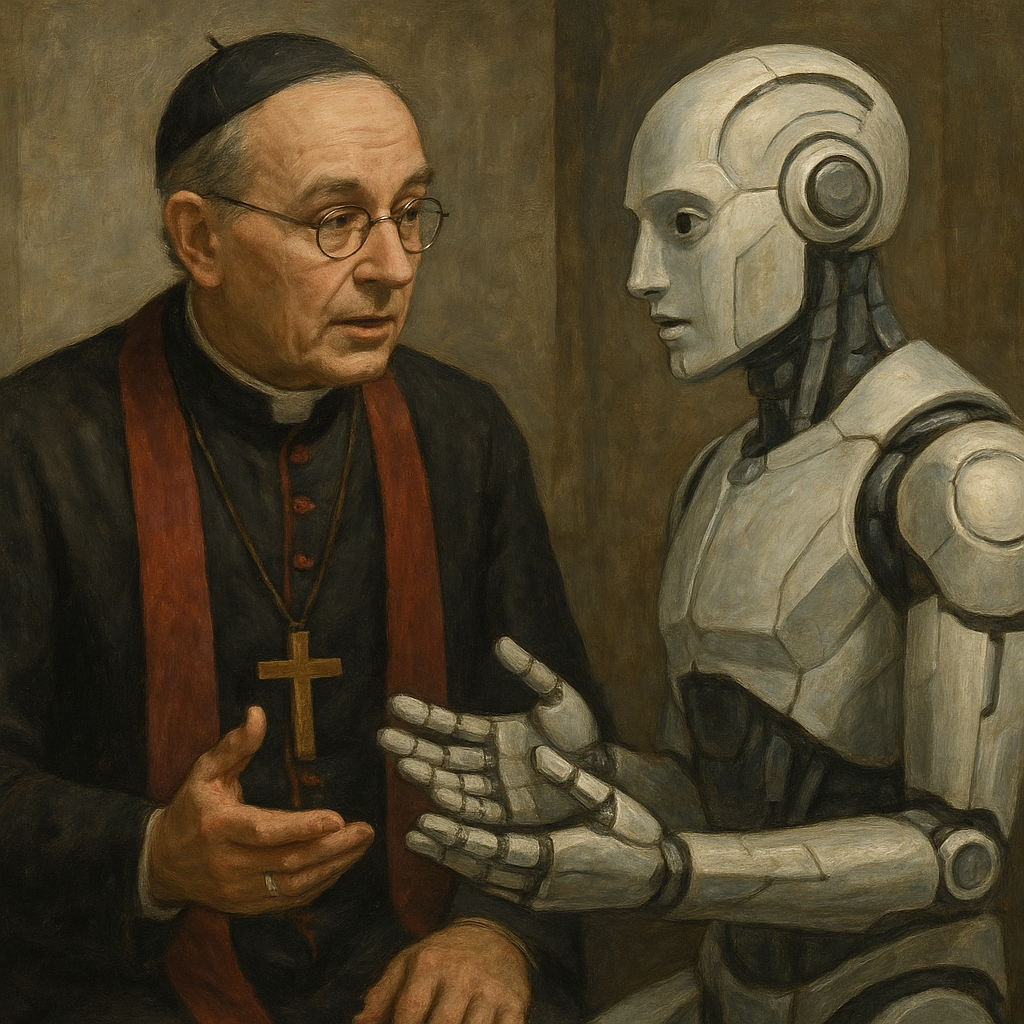Religion & AI Ethics: Should an Algorithm Have a ‘Chaplain’?
As artificial intelligence (AI) becomes deeply embedded in daily life — from social media recommendations to medical diagnostics — questions about its moral and ethical boundaries are no longer confined to scientists and philosophers. They now reach into the realm of theology. What happens when machines start making decisions that affect human lives? Should algorithms, like soldiers or patients, have moral guidance — perhaps even a “chaplain”? This idea, once sounding like science fiction, is gaining attention among ethicists, technologists, and spiritual thinkers who believe that religion might have a role in shaping the soul of AI.
The Moral Dilemma of Machines
AI systems operate on data and logic, not conscience. Yet their impact is profoundly human — determining who gets a loan, what news we read, or which medical treatment is prioritized. This raises a fundamental question: can we trust algorithms to make ethical judgments without some moral compass?
Traditionally, religion has been humanity’s moral backbone. Concepts like compassion, justice, and humility come from faith-based traditions that guided human behavior for centuries. In contrast, AI operates without empathy. It optimizes for efficiency, accuracy, or profit — often ignoring emotional or ethical nuances. For instance, an AI in hiring might unintentionally discriminate because its training data reflects social bias. Would a “digital chaplain” — a human or program trained to infuse moral reasoning — help such systems act more ethically?
Why a ‘Chaplain’ for AI?
In hospitals, chaplains offer comfort to patients and ethical guidance to staff. In the military, chaplains counsel soldiers facing moral dilemmas. Similarly, as AI becomes more autonomous, it too faces ethical crossroads — deciding how to balance privacy and public safety, or fairness and functionality. The concept of an “AI chaplain” symbolizes the need for moral oversight — someone (or something) responsible for ensuring that machine decisions align with human values.
Some researchers propose embedding “ethical governors” in AI — code modules that assess whether an action aligns with ethical principles, similar to a conscience. Religious perspectives can contribute to designing such frameworks. For example, Buddhist mindfulness can inspire caution in data use; Hindu philosophy’s idea of dharma can guide fairness; Islamic ethics emphasize justice and intention; and Christian theology underscores compassion. Together, these traditions offer moral blueprints that could humanize AI’s logic.
Faith Traditions and Machine Morality
Different faiths have long debated the nature of consciousness and responsibility — debates that now echo in AI discussions. Hindu and Jain philosophies speak of karma — action and consequence — an idea that resonates with algorithmic accountability. Buddhist thought, emphasizing interdependence, warns against creating technology without awareness of its impact on all beings. Christian theology asks whether AI, lacking a soul, can truly possess morality. Islam and Judaism, meanwhile, stress stewardship — the duty of humans to ensure that tools serve good and not harm.
By drawing from these insights, religious ethics can help shape the principles that govern AI design. For example, AI should not merely predict behavior but respect dignity; it should not just process data but protect the vulnerable. These are not technical requirements but moral ones — the kind that religions have long articulated.
Risks and Paradoxes
Yet the idea of an AI chaplain also raises paradoxes. Can morality truly be programmed? Can a machine understand compassion without experiencing pain or love? Religion thrives on transcendence — faith, emotion, and mystery — all of which lie outside the digital logic of 1s and 0s.
There’s also the danger of bias. If an AI chaplain reflects one religious framework, it might inadvertently impose that worldview on diverse users. A Christian-coded algorithm may interpret forgiveness differently than a Buddhist or atheist one. Hence, moral frameworks for AI must be pluralistic — grounded in universal ethics rather than exclusive doctrines.
Another challenge lies in authority. Who gets to define the AI’s moral boundaries — engineers, theologians, or governments? In a globalized world, where technology transcends borders, religious ethics must evolve beyond institutional religion to embrace a shared, interfaith humanism.
Spiritual Machines or Moral Mirrors?
Perhaps the question is not whether an algorithm needs a chaplain, but whether humans need one for their algorithms. AI reflects the intentions and biases of its creators. If the people building and deploying AI lack ethical awareness, their machines will mirror that moral emptiness. In this sense, the “chaplain” is less for the algorithm and more for the human team behind it — guiding them to develop technology with conscience and humility.
Some tech companies have already begun hiring AI ethicists, but few include faith-based perspectives. Imagine if religious scholars, monks, or philosophers collaborated with AI labs to evaluate moral implications — not to preach, but to remind developers of the sacredness of life and the value of empathy. This could bridge the gap between code and conscience. In an age where algorithms influence everything from justice to relationships, the idea of a “chaplain for AI” invites deep reflection. It is not about giving machines religion, but about ensuring humanity retains its own moral compass amid technological power. Religion, with its millennia of ethical insight, can provide a moral vocabulary that complements scientific rationality.
As artificial intelligence grows more intelligent, humanity must grow more wise. Whether through chaplains, ethicists, or interfaith councils, the goal is the same: to make sure that in creating intelligent machines, we do not lose the heart that makes us human.
~Religion World Bureau










